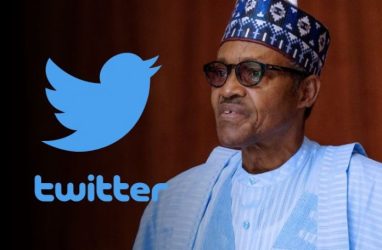There are no products in your shopping cart.
| 0 Items | £0.00 |


CIVIL society group the Socio Economic Rights and Accountability Project (Serap) has filed a law suit against Nigeria's information minister Alhaji Lai Mohammed and the federal government over the recent decision to ban the use of Twitter across the country.
Earlier this month, the federal government announced an indefinite suspension of Twitter's activities in Nigeria following a row during which the social media platform deleted a tweet from President Buhari. In the tweet, he had threatened secessionists in the southeast geo-political zone with war in response to their agitation for an independent state, which Twitter said contravened its rules.
Human rights groups have condemned the ban as a suppression of free speech and Nigerian celebrities have complained that the action will hurt the entertainment industry and cost many jobs. Upping the ante, Serap has dragged the government to the Federal High Court in Abuja with a suit filed by its lawyers Kolawole Oluwadare, Kehinde Oyewumi and Opeyemi Owolabi.
In the suit, Serap urged the court to stop the federal government and Alhaji Mohammed from using their patently unlawful directive to all TV and radio stations not to use Twitter. Their suit also said government officials should not use the deletion of their accounts as a pretext to harass, intimidate, suspend or impose criminal punishment on journalists and broadcast stations simply for using social media platforms.
Furthermore, the lawsuit sought an order restraining the government of President Buhari, the Nigerian Broadcasting Commission (NBC) and Alhaji Mohammed and any other persons from censoring, regulating, licensing and controlling the social media operations and contents by broadcast stations and activities of social media service providers in Nigeria. Serap also sought an order setting aside the directive by the NBC and Alhaji Mohammed, asking broadcast stations to stop using Twitter, as it is unconstitutional, unlawful.
According to Serap, the present administration had consistently made policies and given directives to crack down on media freedoms and the rights of Nigerians to freedom of expression and access to information and imposed crippling fines and other sanctions on broadcast stations without any legal basis. Serap claimed that the latest directive was a breach of the Nigerian Constitution, Article Nine of the African Charter on Human and Peoples’ Rights and Article 19 of International Covenant on Civil and Political Rights.